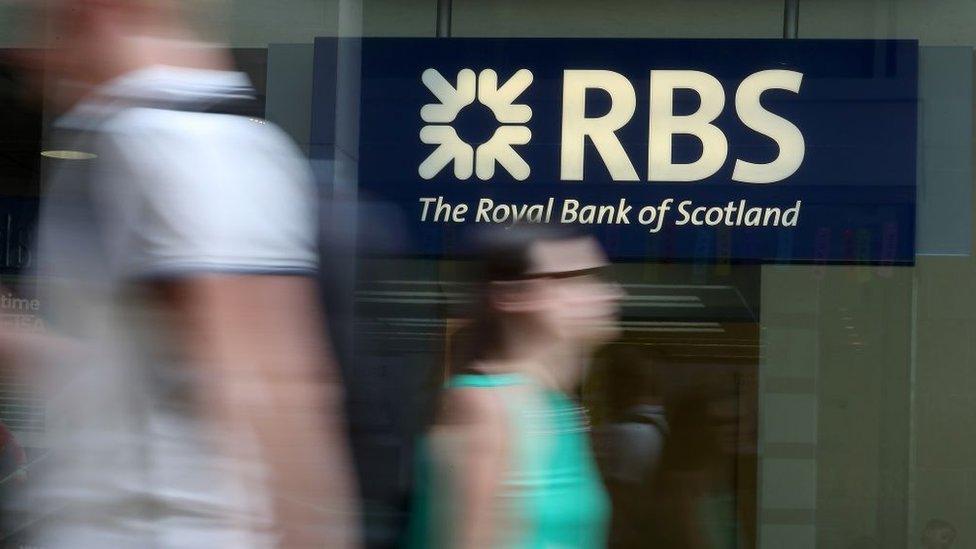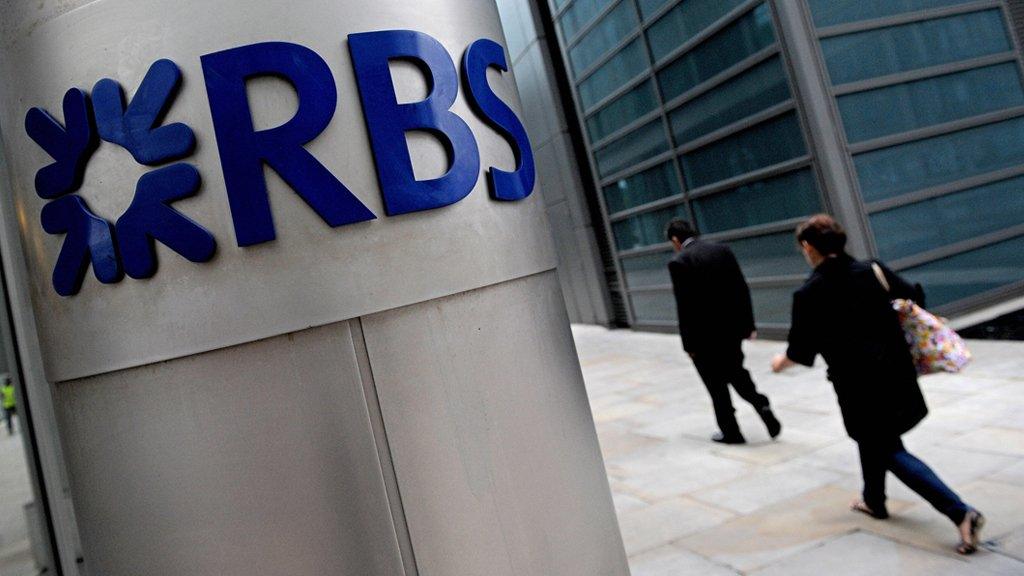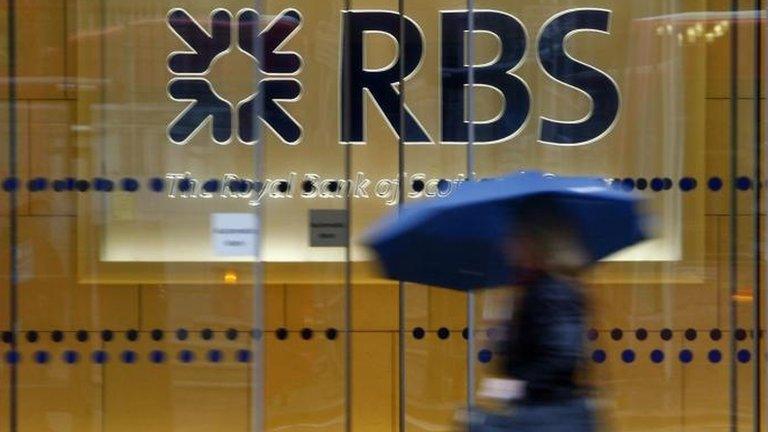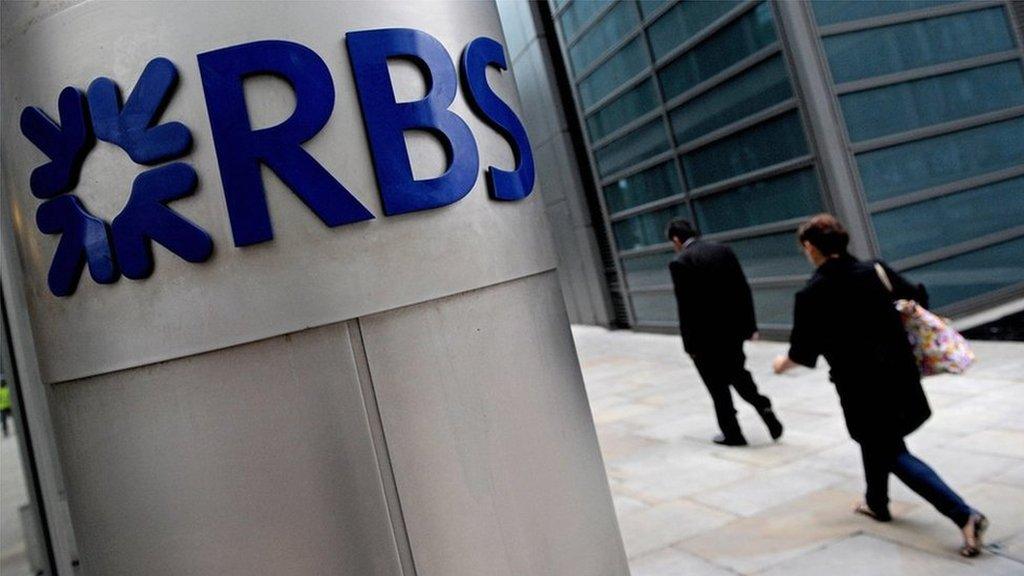Brexit recession warning from RBS boss
- Published
- comments
RBS boss Ross McEwan warns a "bad Brexit" could hit the economy and the bank
RBS chief executive Ross McEwan has warned a no-deal Brexit could tip the UK economy into recession.
He told the BBC a "bad Brexit" could result in "zero or negative" economic growth which would hit RBS's share price.
He also said the bank was becoming careful about lending to certain sectors of the economy - particularly retail and construction.
RBS is still 64% owned by the taxpayer following its bailout 10 years ago.
Mr McEwan said: "We are assuming 1-1.5% growth for next year but if we get a bad Brexit then that could be zero or negative and that would affect our profitability and our share price."
The news that RBS is withdrawing credit will heap further woes on the retail sector which has already seen nearly 2000 stores close so far this year.
"There are some retailers we are having to be a bit more cautious about because they haven't made the necessary transition from bricks and mortar to digital," said Mr McEwan.
'Very cautious'
He also reported jitters in construction.
"The big construction companies are getting very cautious about where they are putting their capital - particularly around London."
Although its appetite for lending across the economy was unchanged overall, he said lending to large businesses was down about 2% this year as they delayed investment decisions.
"Big businesses are pausing, they are saying that in six months time I'll have another look at the UK and I might come back, but if it's really bad I'll invest elsewhere - that's the reality of where we are today."

On a brighter note, he said small and medium sized companies seemed relatively unaffected and were continuing to borrow, invest and grow their businesses.
The government has repeatedly said that a "no deal" Brexit is not its preferred outcome and this week reinforced its commitment to securing a deal before the end of the year.
However, the Governor of the Bank of England, Mark Carney, has said the chances of failing to secure a deal are "uncomfortably high" and many at the Conservative Party conference were clear that leaving without a deal is better than signing up to the government's current plan.
We should care what Ross McEwan says for two reasons.
First, as a bank that does almost all its lending in the UK, its fortunes are dependent on those of the economy as a whole. Second, taxpayers still own two-thirds of this bank.
When Ross McEwan sounds notes of caution about the future - he's talking to all of us.
- Published3 August 2018

- Published5 June 2018

- Published4 June 2018
